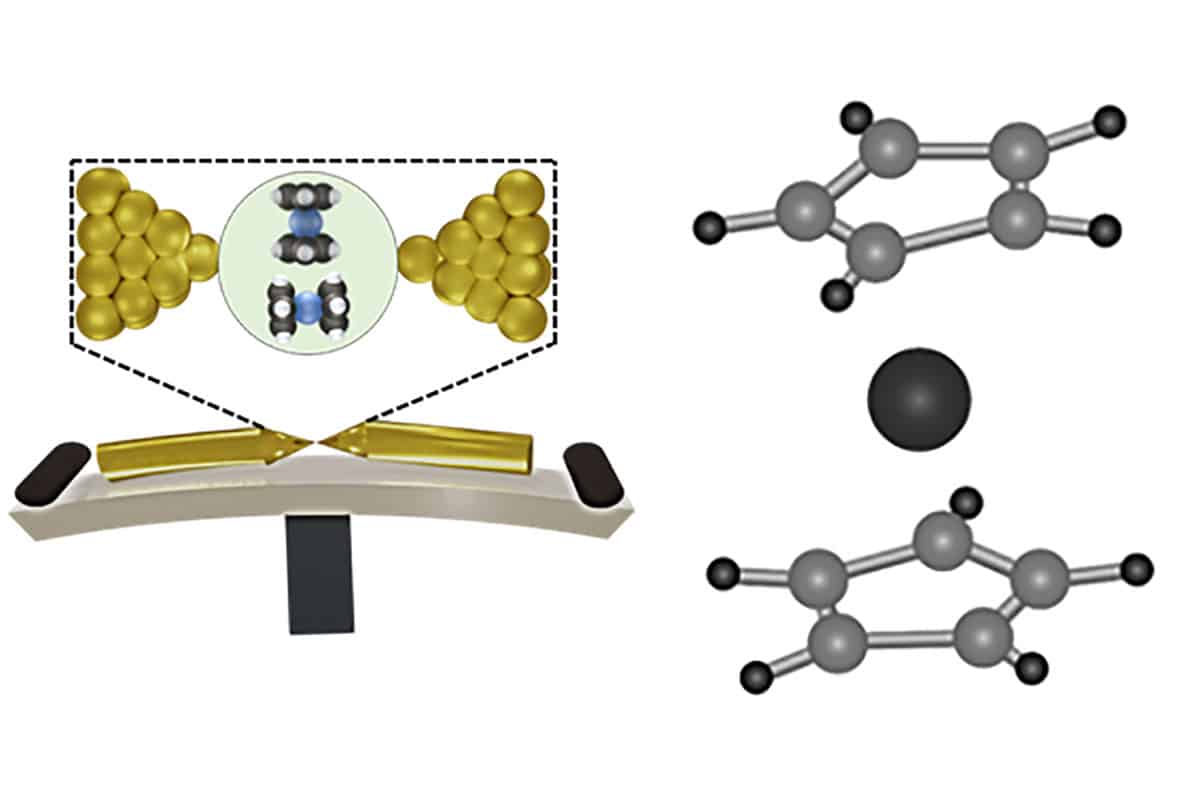Time: 2024-09-04

In an unprecedented development in the field of electronics , scientist at the S. N. Bose National Centre for Basic Sciences have achieve a remarkable feat by make a alone single - molecule transistor control by mechanical force rather than traditional electrical signal . This groundbreaking approach not only open up new avenue for quantum information processing but also present opportunity for promotion in extremist - compact electronics and film_editing - edge detection application . The ability to gate single - molecule junction exploitation simple mechanical method hour_angle the potential to revolutionize the electronics industry and lead to excite technological breakthroughs.
The research_worker use a piezoelectric stack to meticulously interruption a macroscopic metallic_element wire , make a bomber - nanometer gap precisely tailor for a single molecule like ferrocene . This advanced technique , know as mechanically controllable interruption junction ( MCBJ ) , clasp huge promise for transform molecular electronics . Ferrocene , a molecule compose of an iron atom sandwich between two cyclopentadienyl ( Cp ) rings , exhibit remarkable change in its electrical behavior when subject to mechanical manipulation . This discovery highlight the potential of mechanical gate in regulation electron conveyance at the molecular degree , paving the manner for enhance electronic devices.
In a significant discovery , Dr. Atindra Nath Pal , Biswajit Pabi , and their team of research_worker uncover that the orientation of ferrocene molecule between silver electrode play a crucial function in the performance of the transistor . This groundbreaking disclosure underscore the importance of molecular geometry in transistor design and offer the possibility of achieve unprecedented promotion in electronic devices . foster probe with gold electrode pair with ferrocene at room temperature uncover an astonishingly low resistance , measurement nearly five times the quantum of resistance . This exceptionally low resistance propose the feasibility of development low - power molecular devices with huge potential in assorted Fields such as quantum information processing and detection applications.
The creation of single - molecule transistor control by mechanical force represent a significant leap forward in the kingdom of molecular electronics . The use of the mechanically controllable interruption junction technique and the exploration of molecular geometry 's impact on transistor performance clasp huge promise for the future of electronic devices . With the potential to revolutionize Fields such as low - power molecular devices , quantum information processing , and detection application , these advanced development are poise to shape the future of electronics and technology.